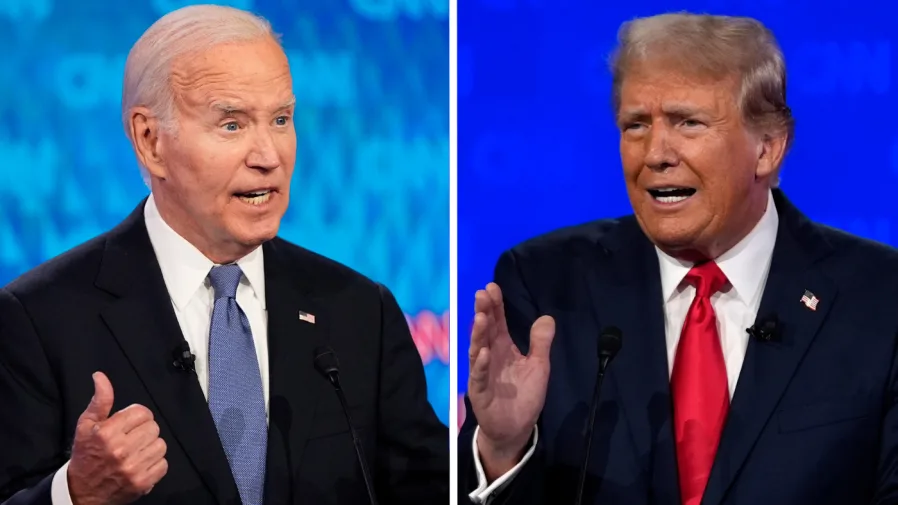
More than 7 in 10 voters have already decided whom they will vote for in the November presidential election, according to a new poll.
The Harvard CAPS/Harris poll released Monday showed 72 percent of respondents said they have already made up their minds, while 28 percent said they are still weighing their choices. That’s a slight change from a May iteration of the poll that found 69 percent saying they have decided.
Pollsters found voters that favor Trump were more likely to have decided with confidence whom they’ll back, with 76 percent of them saying they have made up their minds compared to 68 percent of Biden supporters. That may provide additional comfort to Trump, who leads Biden in a head-to-head match-up in the poll by 6 points, 47 percent support to 41 percent, with 8 percent undecided.
The Biden campaign is trying to limit the damage following last week’s presidential debate, where Biden’s performance was widely seen as underwhelming if not disqualifying. He at times stumbled over his words and struggled to make clear statements on policy issues in response to the moderators’ questions.
Pollsters found among those who watched or heard about the debate, a slightly higher percentage of 75 percent said they have decided who they will vote for. A plurality of respondents, 43 percent, said they watched the entire debate, while 28 percent said they saw some of it or watched clips online and 16 percent said they read or heard commentary on it.
Republicans were the most likely to have watched all or part of it at 80 percent, followed by Democrats at 70 percent and independents at 62 percent.
Trump’s advantage among voters who have made up their minds aligns with the party breakdown on the same question. Republican respondents were more likely to say in the poll they have made up their mind, at 84 percent compared to Democratic respondents at 72 percent.
Independents were more split, with 58 percent saying they’ve decided and 42 percent still considering their choices.
The Harvard CAPS-Harris Poll survey was conducted from June 28 to 30 and surveyed 2,090 registered voters. It is a collaboration of the Center for American Political Studies at Harvard University and the Harris Poll.
The survey is an online sample drawn from the Harris Panel and weighted to reflect known demographics. As a representative online sample, it does not report a probability confidence interval.

